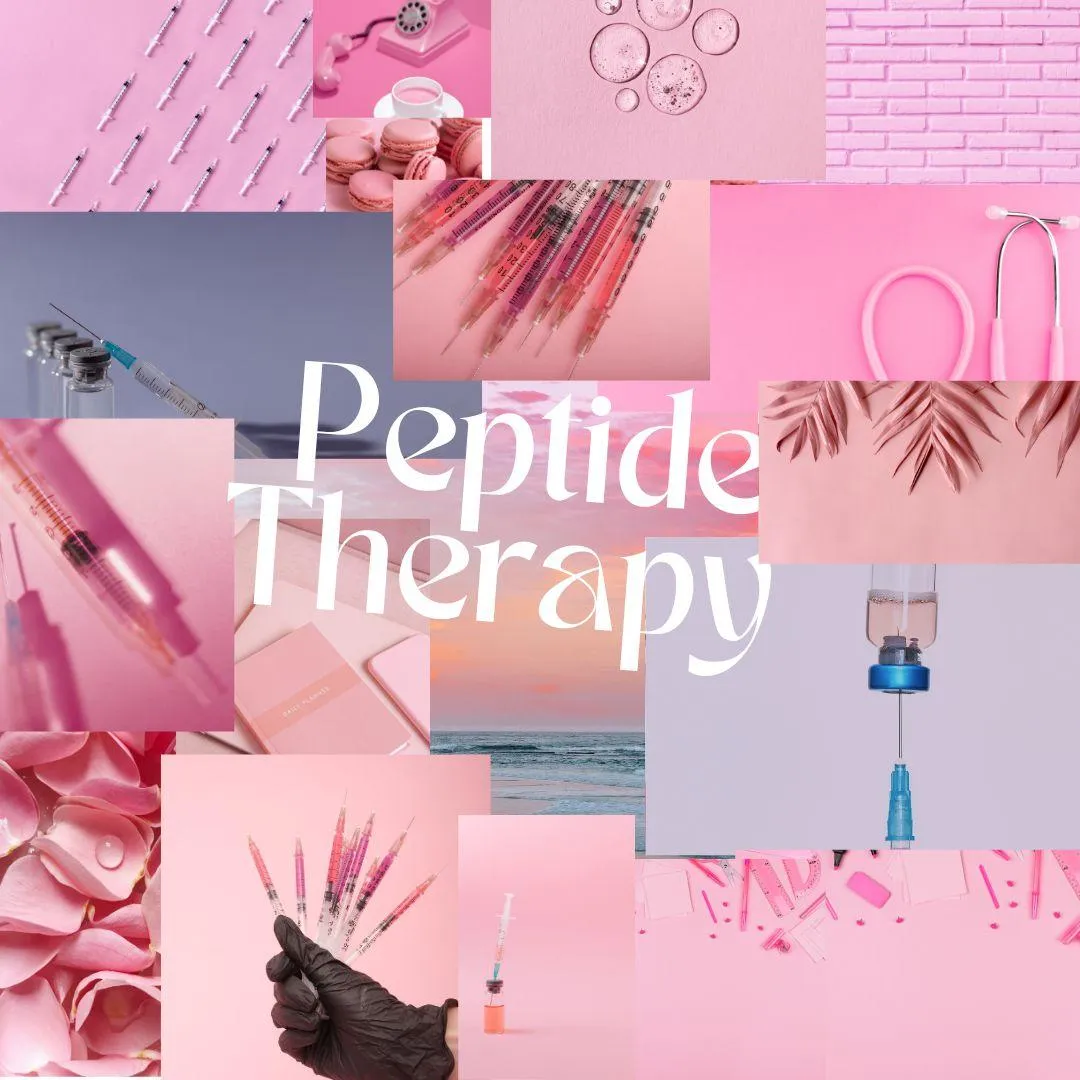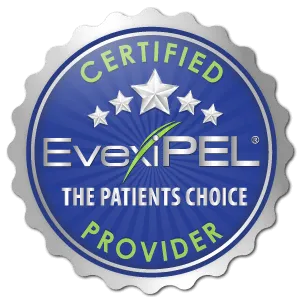Peptide Therapy
Welcome to the forefront of healthcare innovation, where peptide therapy is revolutionizing the way we approach health and well-being. Peptides, short chains of amino acids, are emerging as powerful tools for optimizing health, promoting longevity, and addressing a myriad of health concerns. Join us as we delve into the world of peptide therapy, exploring its diverse types, profound benefits, and the crucial importance of quality in selecting a provider.
The Importance of Quality
When it comes to peptide therapy, quality is paramount. The efficacy and safety of peptide treatments depend on factors such as purity, potency, and formulation. Choosing a reputable provider with expertise in peptide therapy ensures:
High-quality peptides sourced from reputable suppliers to ensure purity and potency.
Customized protocols tailored to your unique health goals and needs.
Regular monitoring and adjustments to optimize treatment outcomes and minimize side effects.
Guidance and support throughout your journey to ensure a positive and empowering experience.

Types of Peptides
Peptides encompass a vast array of compounds, each with unique properties and therapeutic potential. Some of the most notable types of peptides include:
Growth Hormone Releasing Peptides (GHRPs): GHRPs stimulate the release of growth hormone from the pituitary gland, promoting muscle growth, fat loss, and overall vitality.
Incretin Mimetics: Mimicking the action of incretin hormones, these peptides regulate blood sugar levels, improve insulin sensitivity, and support weight management.
Tissue Repair Peptides: Peptides in oral form like BPC 157 accelerate tissue repair, reduce inflammation, and enhance recovery from injury or surgery.
Cognitive Enhancing Peptides: Peptides such as nootropics improve cognitive function, memory, and mental clarity.
5-Amino-1MQ
5-Amino-1MQ has been shown in research to address age-related decline in fat-burning capacity. Adequate dosing and pairing 5-Amino-1MQ with a complementary treatment plan typically restores the body’s natural ability to burn excess fat. 5-Amino-1MQ naturally reduces the concentrations of nicotinamide N-methyltransferase (NNMT), facilitating weight loss and better health in older adults.

GHK-Copper (GHK-Cu)
GHK Copper peptide has a number of uses for anti-aging, including skin tightening and improvement in appearance of aged skin, stimulation of wound healing, UV radiation protection, and inflammation reduction as well as hair growth.

LGD-4033
Shown in research to be one of the most potent and highly effective selective androgen receptor modulators (SARM), LGD-4033, creates anabolic activity in the bones and muscles. This function makes LGD-4033 an effective treatment option to support strength, increased lean muscle mass, exercise recovery, and reduced body fat

PT-141
PT-141, also known as Bremelanotide, is an innovative peptide hormone treatment shown to be effective for improving sexual function in men and women. PT-141 supports treatment of erectile dysfunction and increased libido in men and improves female sexual arousal disorder in women. PT-141 works directly through the nervous system to increase arousal, desire, and satisfaction with sex. PT-141 peptide induces desire and motivation for sex, increases blood flow to the penis or vagina and clitoris.

Rapamycin
Rapamycin is a macrolide isolated from a fermentation broth of Streptomyces hygroscopicus, a bacterium discovered on Easter island in 1972. This peptide plays a central role in mediating the beneficial effects of dietary restriction on healthy aging. Rapamycin initially began as an FDA-approved immunosuppressant for renal transplant patients. At higher doses, it has been shown to improve immunity, reduce age-related conditions and prolong the lifespan (animal studies).

Retatrutide/Pyridoxine
By uniquely targeting three receptors essential to a well-functioning metabolism, retatrutide is a triagonist drug that encourages satiation, supports blood sugar regulation, and helps suppress appetite. Pyridoxine may enhance retatrutide’s efficacy while decreasing potential side effects, such as nausea and fatigue.

The Benefits of Peptide Therapy
Peptide therapy offers a multitude of benefits for both preventive and therapeutic purposes. Some key advantages include:
Enhanced Recovery: Peptides accelerate tissue repair and reduce recovery time from injury or surgery.
Improved Performance: Peptides can enhance physical performance, stamina, and endurance
Hormone Optimization: Certain peptides regulate hormone levels, promoting hormonal balance and vitality.
Anti-Aging Effects: Peptides support cellular repair and rejuvenation, helping to combat the effects of aging.
Disease Prevention: Peptides may reduce the risk of chronic diseases by modulating key biological pathways.
Personalized Medicine: Peptide therapy can be tailored to individual needs, offering precise solutions for optimal health.

